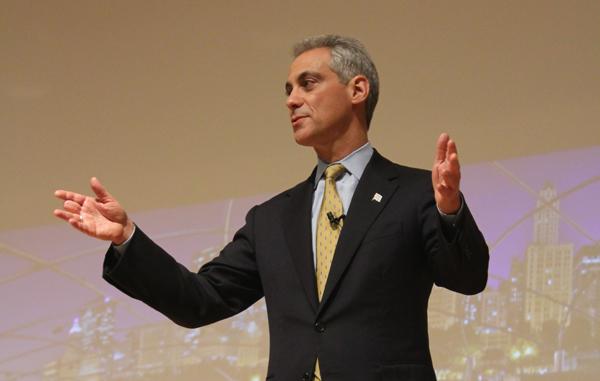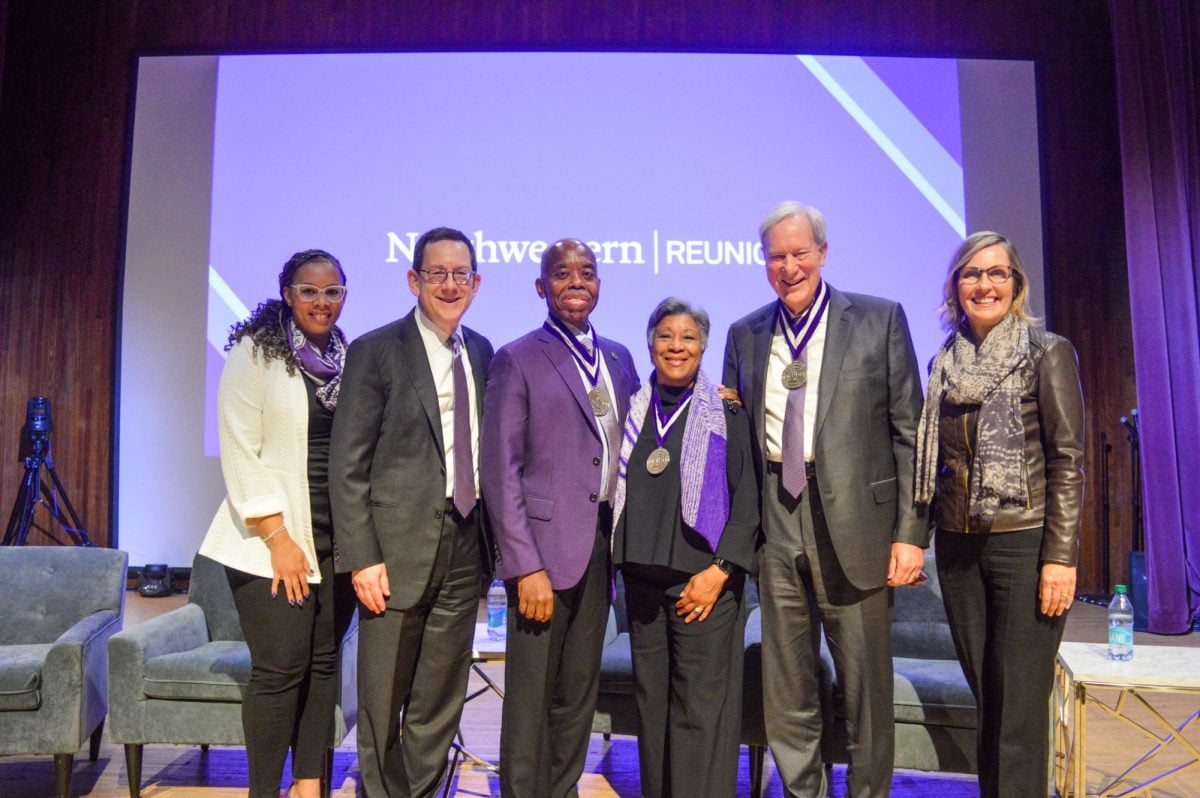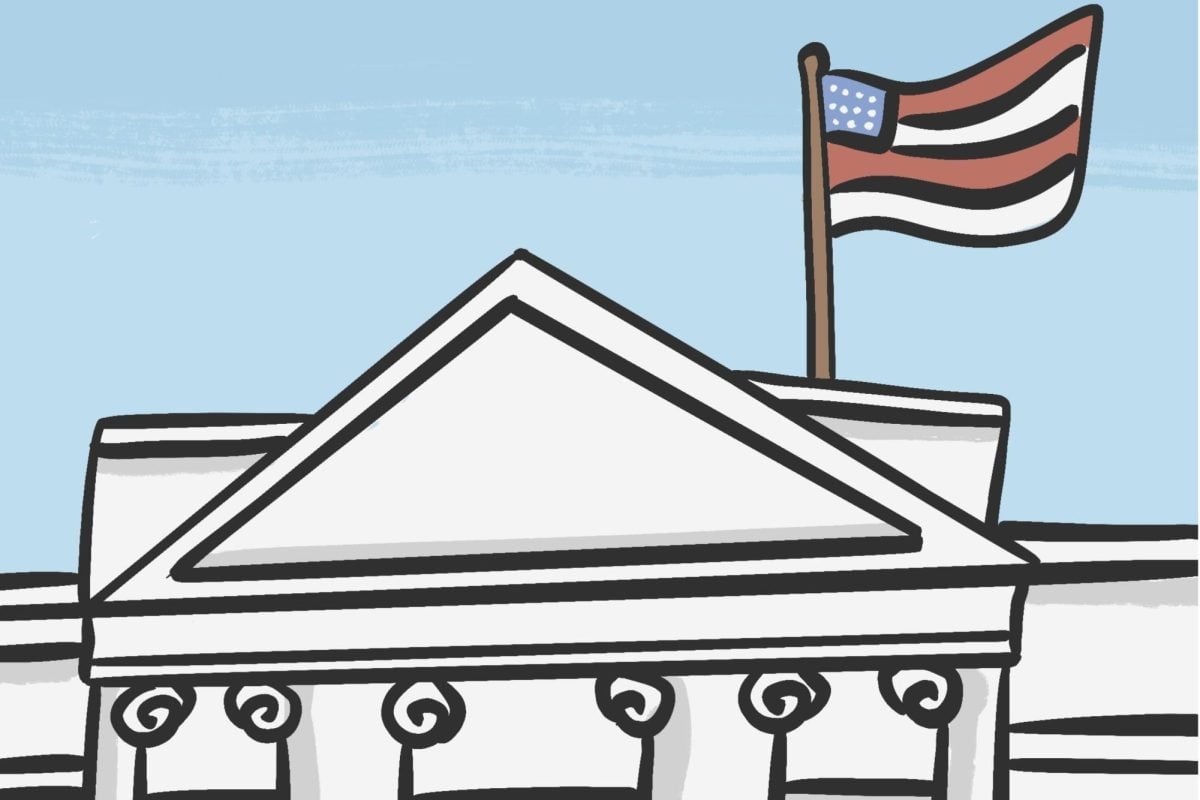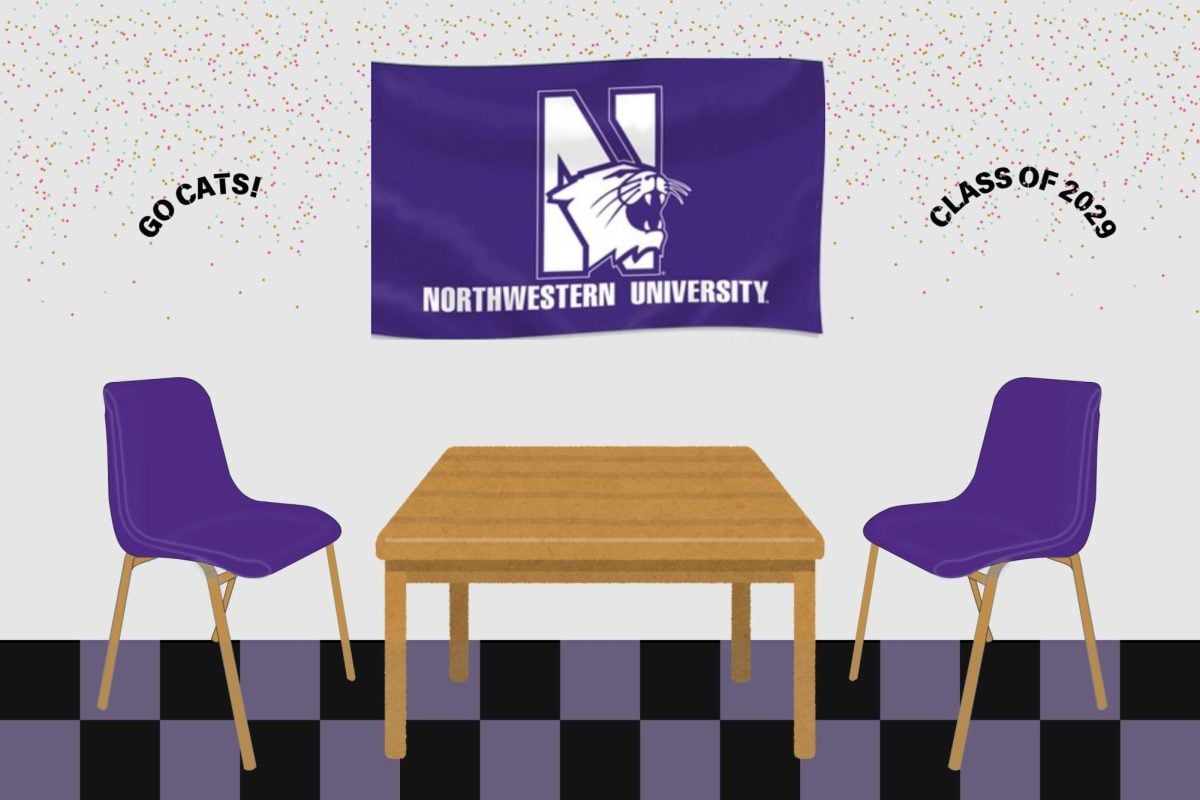
Although Chicago Mayor Rahm Emanuel (Communication ‘85) came to Northwestern to speak at a One Book One Northwestern event Wednesday afternoon, he focused more on Chicago politics and the 2012 election than this year’s book, “Never a City So Real.”
“Let me be blunt and frank, I have not read this book,” Emanuel joked to the audience. “That’s your responsibility, not mine.”
Emanuel discussed the features of Chicago that contribute to its international status during his remarks and then answered questions from event moderator and SESP Prof. Daniel Lewis. The Northwestern community packed the Ryan Auditorium in the Technological Institute and attendees who did not arrive early enough for a seat were able to form “spillover” seating in a nearby lecture hall.
The Office of the President sponsors the community-reading program that hosted Wednesday’s event. University President Morton Schapiro, who was in attendance, told The Daily on Tuesday he was “excited” for Emanuel’s visit to campus, explaining the Chicago mayor met the requirements several campus organizations he met with were looking for in a speaker.
“Who’s a celeb, who knows something about Chicago, who knows something about politics — Rahm Emanuel,” Schapiro said about deciding what speaker to bring to NU.
Emanuel began by explaining that the narrative of Chicago is one of immigrants and the American dream. He then touched on his service as President Barack Obama’s Chief of Staff and explained how Obama’s experience as a city organizer in Chicago influenced some of his policy decisions in office, particularly in reviving the automobile industry.
“I think the president’s experience on the south side of Chicago really mattered,” Emanuel said. “In the Oval Office, at the end of the day, all you have are your values, your judgment and your ability to see the end of the road clearly when everyone else sees fog.”
Emanuel also said policies mattered more than demographics in determining the president’s reelection.
“Don’t let anyone try to steal what happened here,” he said. “Ideas count in politics.”
He explained he has committed to the president’s own campaign goal of rebuilding America in his own role as mayor of Chicago, focusing on improving the quality of the workforce in the city through education and improving the city’s infrastructure. He explained his support for full school days and years for Chicago Public Schools students.
He then fielded questions from Lewis and spoke at length when asked about the state of racial tensions in the demographically changing city. Emanuel said although racial tensions persist in Chicago, class distinctions now cause persistent divisions.
“It’s more about class and income than it is ethnicity and race,” Emanuel said. “I have to make sure that this city doesn’t pull apart with class lines.”
He then expanded on his remarks about demographics when Lewis asked him for further insight into the 2012 election. He explained, for example, that Obama earned the Hispanic vote because of how his ideas about immigration stacked up against former Massachusetts Gov. Mitt Romney’s proposals.
“To win on Election Day you have to have more ideas that are more competitive,” Emanuel said.
Emanuel concluded by noting the interdependence of Chicago and Northwestern as they look to the future.
“You are part of our future,” he said to the students.
Following the event, the students in attendance had mixed opinions about the mayor’s speech.
“I thought he was humorous overall,” said Weinberg freshman Lauren Feld. “I thought he skirted some of the questions about race.”
Communication junior Dylan Pickus said he wished the event was more of a discussion.
“It felt like a campaign event,” he remarked.
Prior to the event, about six students from the International Socialist Organization picketed outside Tech and distributed flyers about their opposition to the mayor’s policies. Weinberg senior Noah Charles, a member of the organization, said he opposed many of the mayor’s decisions, particularly the budget that Charles said closed half of the city’s free mental health clinics.
“People are uninformed when they get their information from one source,” said Charles, explaining why he wanted to distribute information out to the event attendees.


















